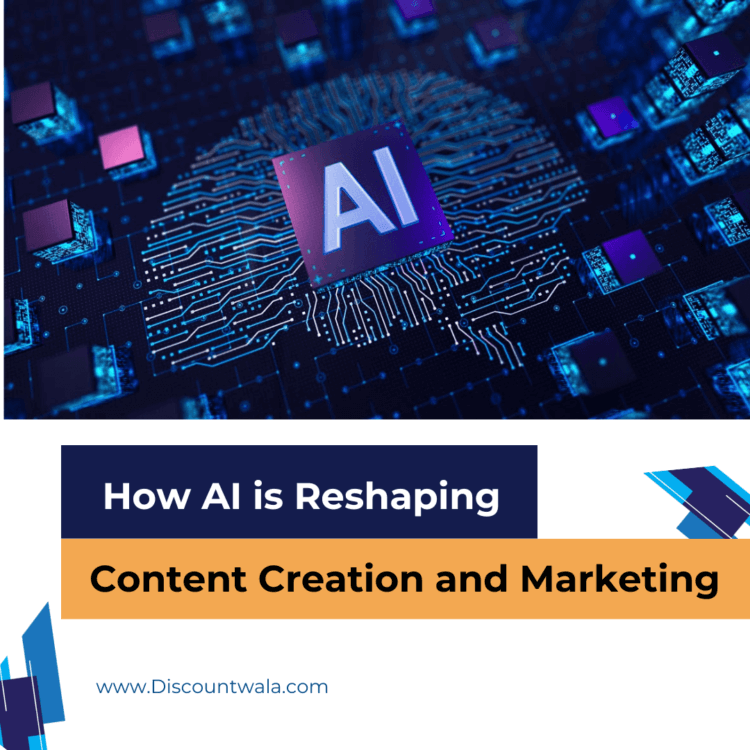AI (Artificial Intelligence) is having a profound impact on content creation and marketing across various industries. Here are some ways in which AI is reshaping these fields:
Content Generation:
AI-powered content generation tools like GPT-3 can automatically generate high-quality written content, including articles, blog posts, product descriptions, and more. This saves time and resources for content marketers and can help maintain a consistent publishing schedule.
Personalized Content:
AI can analyze user data to create personalized content recommendations. For example, e-commerce platforms use AI algorithms to suggest products based on a user’s browsing and purchase history, increasing the likelihood of conversion.
Content Curation:
AI tools can sift through vast amounts of content to curate relevant articles, videos, and other materials for a target audience. This helps content marketers stay up-to-date and provide valuable information to their readers.
Chatbots and Customer Support:
AI-driven chatbots and virtual assistants are being used for customer support and engagement. They can answer common questions, provide product information, and even assist in completing transactions, enhancing the customer experience.
Content Optimization:
AI can analyze content for SEO (Search Engine Optimization) purposes. It can suggest keywords, optimize meta descriptions, and help improve the overall search engine ranking of content.
Data Analysis and Insights:
AI-powered analytics tools can process large datasets to provide valuable insights into audience behavior and preferences. Marketers can use this information to refine their content strategies and campaigns.
Content Translation:
AI-driven translation services, such as Google Translate, can quickly translate content into multiple languages, expanding the reach of marketing campaigns to global audiences.
Content Enhancement:
AI tools can enhance content through image recognition, video editing, and audio processing. For example, AI can automatically generate captions for videos or suggest image alt text for accessibility.
Email Marketing:
AI is used in email marketing to personalize subject lines, content recommendations, and send times based on user behavior and preferences, improving open rates and engagement.
Predictive Analytics:
AI can predict future content trends and identify what topics are likely to perform well. This helps content creators stay ahead of the curve and produce relevant, timely content.
Content Distribution:
AI-driven algorithms on social media platforms and content distribution networks can optimize the delivery of content to the most relevant audiences, increasing visibility and engagement.
Content Editing:
AI-driven editing tools can assist writers and editors by providing suggestions for improving grammar, style, and readability, resulting in higher-quality content.
Video Marketing:
AI can automate video creation and editing, making it easier to produce and distribute video content, which is increasingly popular in marketing.
Sentiment Analysis:
AI can analyze social media and online sentiment to gauge public opinion and customer feedback, helping businesses adapt their content and marketing strategies accordingly.
Content A/B Testing:
AI can facilitate A/B testing of content variations to determine what resonates best with the audience, leading to more effective marketing campaigns.
While AI offers numerous benefits for content creation and marketing, it’s important to use these tools thoughtfully and ethically. Human oversight is crucial to ensure that AI-generated content aligns with brand values and maintains a human touch. Additionally, staying updated on AI advancements and trends is essential for businesses looking to leverage these technologies effectively.










No Comments
Leave Comment